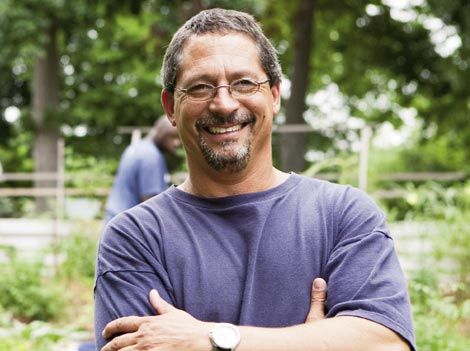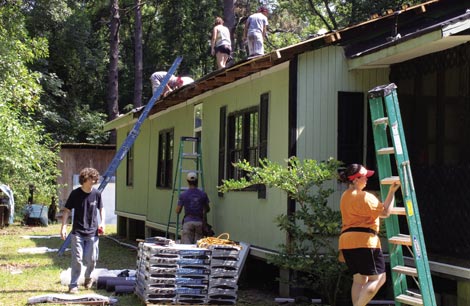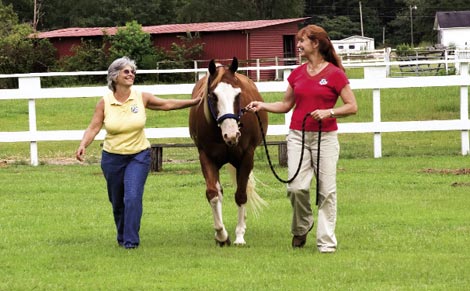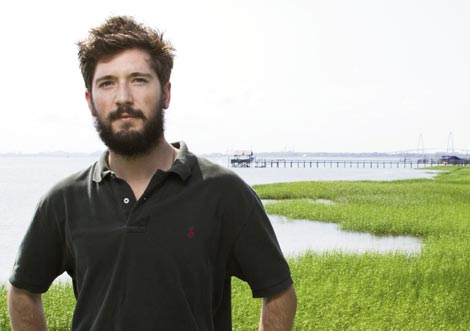
Cecelia Gordon Rogers Principal
(843) 722-2689 • www.charlestondevelopmentacademy.org
CAUSE
“We are committed to shifting the paradigm,” says Cecelia Gordon Rogers, the jubilant principal at Charleston Development Academy (CDA), an inner-city public charter school that’s teaching that every student, regardless of socioeconomic background or learning style, can succeed in the classroom. “We’re experiencing tremendous academic excellence by eliminating failure as an option, returning to the basics, and maintaining high expectations of each learner.” The award-winning school’s rich but rigorous curriculum engages students through music, drama, visual arts, and culture. But CDA isn’t just developing scholars’ abilities to think, reason, and understand the world; perhaps more importantly, the dedicated administration cultivates positive character traits, self-awareness, confidence, and enthusiasm in a safe environment where family involvement is paramount.
HISTORY
CDA began as a vision of the Ebenezer AME Church congregation, who believed in early intervention to enhance the education of the community’s most vulnerable youth. Charleston County School Board approved CDA’s application to become a public charter school in January 2003, and a planning committee spent the next seven months securing and renovating the Septima P. Clark building in the Gadsden Green Public Housing Community. In August of that year, the center opened its doors to 65 students.
Now serving 165 kids in pre-kindergarten through eighth grade, CDA has earned some of the highest awards in the state, including the South Carolina Department of Education’s Palmetto Gold Achievement Award and recognitions for state charter Administrator of the Year and Teacher of the Year in 2010.
GROWTH
While a permanent campus is on CDA’s long-term wish list, the administration’s immediate goal focuses on expanding to accommodate the growth of the school. Construction is underway for an eighth grade “Learning Cottage” that includes an outdoor performance and gathering space. In collaboration with Liollio Architecture, students helped visualize the facility during a competition for the design of a mobile classroom.
FUNDRAISING STYLE
The school’s daily operations are financed through the Charleston County School District; private donations fund additional field trips, materials, technology, and facilities. Since students are the school’s best ambassadors, CDA often invites donors into the classroom to meet these avid learners. And each May at the Annual Purple Gala, CDA pupils share dramatic, musical, and visual arts presentations with the community.

John Glemser Director
(843) 554-5179 • www.southcarolinastrong.org
CAUSE
Teach a man to fish—or build, or garden, or cook—and you will feed his life. That’s the goal of South Carolina STRONG, a voluntary residential education program for rehabilitating criminal offenders, substance abusers, and homeless men. To gain economic self-sufficiency and the sense of responsibility needed to succeed in society, residents learn academic, vocational, and social skills. Relying on volunteers and donated materials, SC STRONG operates four training schools—construction, culinary arts/catering, furniture restoration, and landscaping—to teach specific job skills and provide income for the program.
IMPETUS
Each week, about 500 people are released from Charleston County Jail. Most are poor, illiterate, and unskilled. A third will end up back behind bars within three years, and those who don’t will likely wind up without work and on welfare. “SC STRONG aims to reverse the cycle of poverty and crime and establish a new cycle of learning; caring; and economic, personal, and financial stability,” says director John Glemser.
RESULTS
Since 2006, six men have fulfilled the two-year commitment, graduating with a GED and three marketable skills. Of the 40 others who completed 90 days or more, 82 percent have stayed out of jail. In two rehabbed properties, the program currently houses 25 residents, who are working to renovate a third building and raise capacity to 70.

Anthony Juliana Executive Director
(843) 884-4860 • www.umrc.org
CAUSE
Safe shelter is a basic human need. But for many rural poor, sagging floors, leaky roofs, no electricity, even a lack of indoor sanitary facilities mean the need chronically goes unmet. The United Methodist Relief Center works to make long-lasting changes in peoples’ lives by repairing and rehabilitating substandard housing and providing new housing for low-income families around the state. Over the past two decades, the nonprofit has fixed more than 2,300 residences and constructed 66 new houses. “A quality home opens the door for environmental, emotional, and educational health and stability,” says executive director Anthony Juliana.
HISTORY
In 1989, Hurricane Hugo tore through the Lowcountry, leaving in its wake damage to homes of the rich and poor alike. As a massive volunteer effort got underway, Hibben United Methodist became one of the disaster response centers for the East Cooper area. During the recovery process, coordinators became aware of the vast level of existing poverty, so in June 1991, the church established a full-time Relief Center to address the Tricounty’s rural housing problem.
PROGRAMS
The Striva Community Youth Service brings together rural teens, college mentors, and construction staff to renovate houses while teaching the value of community participation. “The youth learn they can be a catalyst for change,” says Juliana. Other programs include transportable housing for the elderly and a home ownership initiative.

Richard Marcus Conductor
(843) 830-0554 • www.yolow.org
CAUSE
While school districts across the country are eliminating arts programs due to budget shortfalls, the Youth Orchestra of the Lowcountry (YoLow) continues to offer opportunities for talented young players to study, understand, and perform great works of classical music. Inspired by interactions with professional and university-level musicians, the 50 to 60 participants in this auditioned group hone their musical skills and develop a lifelong appreciation of the high art of music. “Most of our members have been selected for All-Region and All-State Band and Orchestra,” conductor Richard Marcus says proudly.
RESULTS
Alumni have gone on to major in music at prestigious institutions including the College of Charleston, University of North Carolina School of the Arts, Cincinnati Conservatory, and Boston Conservatory.
FAVORITE EVENT
In February, YoLow hosts an annual concerto competition, during which these young instrumentalists play from memory a movement from a standard concerto. The public is invited to experience their talents.

Dr. Kathleen Broughan & Dr. Julie Lipovsky cofounders
(843) 723-0659 • www.leapinsc.org
CAUSE
The bond between man and animal can be a powerful healing force, so Lowcountry Equine-Assisted Psychotherapy (LEAP) cultivates that connection to enrich the lives of those facing emotional, behavioral, or social difficulties. Focusing on quality mental health care for people in financial need, particularly abused and neglected children, the group helps participants find new approaches for coping, develop more effective ways to express feelings, and improve in school and on the job. “Horses elicit a wide range of feelings as clients experience the outcome of their way of approaching the world,” says Dr. Kathleen Broughan. Take, for example, one lonely nine year old who gained confidence in himself and learned to trust others after befriending “Tank.” He’s now an active and happy boy no longer afraid of the world.
GROWTH
LEAP is currently looking into providing equine-assisted psychotherapy to members and veterans of the U.S. military. And as always, the nonprofit continues to seek additional funds through paying clients, donations, grants, fundraisers, and staff contributions in order to alleviate the waiting list of clients in need.
FAVORITE EVENT
In addition to a December silent auction event, LEAP hosts an annual trail ride to help finance therapy scholarships. On October 23 at the Eagle Harbor Boys Ranch, riders can explore the countryside and compete for best Halloween costume before enjoying live music and barbecue.

Cyrus Buffum Executive Director
(843) 608-9287 www.charlestonwaterkeeper.org
CAUSE
Clean water. In Cyrus Buffum’s mind, this essential resource could be grouped with life, liberty, and the pursuit of happiness. Since 2008, Charleston Water-keeper has been defending local waterways from pollution while protecting the public’s right to clean water. Through hands-on community involvement, scientific monitoring, educational advocacy, and legal action, this 200-member watchdog organization aims to measurably improve the quality of Charleston’s rivers, creeks, oceans, and shores.
OUTREACH
“Our waterways belong to each of us,” says the executive director. “In turn, we as individuals are responsible for protecting and preserving them.” Charleston Waterkeeper strives to empower the community through regular beach cleanups, meetings, and events throughout the year. A new educational outreach program is designed to empower younger generations to become stewards of our waterways. And last year, Charleston Waterkeeper became the first Waterkeeper Alliance program to launch an iPhone app that allows citizens to report suspicious activity while on, in, or around area waterways. The feature also updates users on pertinent issues impacting the health of our waters.
RESULTS
After numerous beach cleanups, Charleston Waterkeeper has gathered data on the cause and culprits of beach debris and is working to curb the source. It has also helped identify the locations of abandoned boats in need of removal throughout the Lowcountry. And the group recently launched the “Say No to Dirty Bottoms” campaign after finding a direct correlation between copper-based bottom paint and copper-impaired waterways.
FUNDRAISING STYLE
Though initially financed solely by private donations and membership fees, in the past year, Charleston Waterkeeper hosted two annual fundraisers—the WTF Event (Water the Future) and the Water Ball. The latter, held in March at the South Carolina Aquarium, raised more than $15,000. The group is also seeking grants to help fund programs and campaigns.